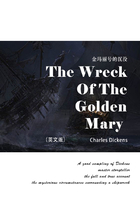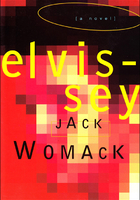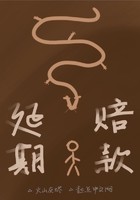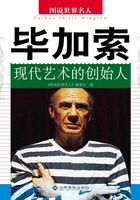In The Classic Mantle, acclaimed sportswriter Buzz Bissinger tells the story of Mickey Mantle's unforgettable career. Long considered one of baseball's most memorable figures, Mantle spent his entire eighteen-year career, from 1951 to 1968, with the New York Yankees, winning three American League MVP titles, playing in twenty All-Star games, and winning seven World Series. Today, more than forty years after his retirement, he still holds six World Series records, including the one for most home runs. Bissinger goes beyond the statistics to bring Mantle to life, and stunning photographs by Marvin E. Newman make this book a fitting tribute to Mantle's career and his lasting impact on the sport of baseball.
I remember the year, 1962, when I was seven years old. I know it was a Sunday in May when doubleheaders were still commonplace. I know it was my first game ever at Yankee Stadium, for me far more important than a pilgrimage to the Vatican to talk baseball with the pope. I know I was with my father. I know the opponents were the hapless Washington Senators, which meant he probably got the tickets for free. I know the seats were many rows up on the mezzanine level, leaving any ball hit to the last third of the outfield up to the imagination.
It did not matter.
In the second game that day, an easy win in which Jim Bouton pitched a complete game shutout despite giving up seven hits and seven walks, Mickey Mantle hit two home runs. I won't say I remember the trajectory of the ball, but memory isn't for literal remembrance anyway, so the arc of the ball in each instance was high and explosive, neither one a little squeaker just clearing the fence. Because in the mind of a child, the Mick never hit squeakers anyway. And most of the time he didn't.
It seemed to me on that day of May in 1962 that everything about Mantle was right, the essence of what a great baseball player should be and represent. I loved the way he looked in the on-deck circle, on one knee in rapt attention, eyes lasered on the pitcher to see what he was throwing. Like everyone else, I noticed the way he ran the bases after he hit those home runs, with his head ducked down so as not to show anyone up, but also, as if it were possible, to try not to draw attention to himself.
I knew the Mantle lore, as any baseball kid from New York did—the "tape measure" home run against the Senators in April 1953 that left Griffith Stadium in the nation's capital and was pegged at 565 feet before it landed in a backyard; the shot in 1956, once again off the Senators, this time at Yankee Stadium, that came within eighteen inches of leaving the Stadium before it caromed off the upper-deck facade and would have traveled an estimated 600 feet had the flight been unimpeded; the shot in 1963 off Kansas City A's pitcher Bill Fischer at the Stadium that once again would have been the first fair ball ever hit out of Yankee Stadium were it not for the gap of several feet to the top facade; the twelve World Series he appeared in, seven of them won by the Yankees, in which he hit 18 home runs and drove in 40 runs, both major league records; the more pedestrian dingers that routinely cleared 400 feet.
I knew he was fast, not as fast as he was at the beginning of his major league career, in 1951, when nobody had seen anyone run that fast to first base, but still in my mind fast enough. I longed to have been old enough to appreciate his greatest season ever, 1956, when he won the Triple Crown. I had followed the epic home run derby between him and Roger Maris in 1961 in which it had been assumed that Mickey would be the one to topple the Babe's mark of 60 had he not gotten hurt.
Batting left-handed, Yankee Stadium, 1955
I was not aware of his legendary carousing in the 1950s with partners in crime Billy Martin and Whitey Ford and Hank Bauer. I knew nothing of his drinking. I knew nothing of his self-hatred, a man who despite all his accomplishments was as hard and relentless on himself as any man has ever been. I knew nothing of the pathos and bathos of his descent after his playing days were over and he might as well have been an unmoored buoy in an untamed sea.
But no child in the Mantle era had knowledge of any of that. In my very first game at the Stadium he did exactly what I hoped he would do, what all of us who watched him hoped he would do at any given moment.
Be epic.
Mickey Mantle has been dead for seventeen years. Given his career and life, it seems impossible that he has been gone that long. He still resonates in the public awareness, has a front-of-the-line place, unforgotten like virtually all other sports figures are inevitably forgotten. You can still see the all-American blond hair and shy smile of a boy from Oklahoma who conquered not only the greatest city in the world but also the world's toughest collective critics in which his mission, even if he chose not to accept it, was somehow to replace the great DiMaggio in his mansion of center field in the early 1950s. You can still see the gaunt frame withering into death as the cancer ate through him, when the smile, no longer boyish, had the poignancy of tragedy and regret but also dignity.
And, of course, you can still see the number 7 etched into the blue pinstripes of his uniform like the brightest star, a talisman of the supernatural. You can still see the monstrous back-to-front swing, where nothing was ever left out. And you can still see those home runs like the instant formation of the biggest rainbow, flying into the sky to shove aside the Big Dipper. The Natural? The comparison has been made a million times. But he was the Natural in every way possible, on the field and off of it.
Certainly Mantle's play in the caverns of old Yankee Stadium did make him unique, more than unique, right up there with DiMaggio and the great ghosts of Ruth and Gehrig when he was anywhere close to healthy, which he never really was, going back to his days as a teenager. He deserves his place among the center-field monuments. He always played hard despite constant and unimaginable pain in his legs. He even played well when he was miserably hung-over, mustered by his cantankerous manager, Casey Stengel, to pinch-hit in the seventh of one game, even though the vapors of alcohol carried to Queens, and still able to hit a home run. He was a switch-hitter thanks to his father, Mutt, who started to teach him how to bat from both sides of the plate when he was four. There was the incomprehensible speed in addition to the incomprehensible power despite chronic osteomyelitis, a bone infection in his left ankle stemming from being kicked above the shin in a high school football game.
Even with the wreckage of his right knee that took place in the 1951 World Series, in his first major league season, he still could have hit close to 1.000 by doing nothing but drag bunting from the left side and racing to the bag. Perhaps the most remarkable feat against the Senators in 1953, when he hit at that time the longest home run ever recorded, is how later in the game he drag-bunted the ball all the way to second base and still beat the throw for a single, prompting the New York Times to wonder if in the course of one game, he had hit both the longest home run ever and the longest successful bunt ever.
Mantle played eighteen years for the Yankees. He extended that career four years too long because of those multiple injuries and the wrenching sight of him mummifying his legs in tape from ankle to thigh before he walked onto the field. But his statistics were still legendary: 2,401 games, 536 home runs, 1,509 runs batted in, 1,733 walks, an OPS of .977, a batting average of .298.
Great stats. One of only seven players at the time to be elected to the Baseball Hall of Fame in his first year of eligibility. But other players have had great stats. Ted Williams, who routinely fought it out with Mantle for Most Valuable Player during the 1950s, finished with a career average of .344 and 521 home runs and 1,839 runs batted in during nineteen seasons, not to mention 2,021 walks and an OPS of 1.116. Williams also was a grand character, rough and gruff and blunt and a true artist of hitting. But he still wasn't Mickey Mantle.
Most athletes keep their lives under lock and key, fanatically protective of their personalities perhaps because so many, particularly in today's era, don't want fans to discover they actually don't have one. Because of the process of sports, a highly tuned assembly line in which the potentially great ones are identified in elementary school and still in single digits, they become coveted and spoiled and inward.
What distinguished Mantle was a total willingness to be human, a profound openness in which he ultimately decided there could be no secrets in his life regardless of how horrible they were. As my college roommate Harry O'Mealia put it, a great baseball fan and the most literate man I know, so many millions saw a reflection of themselves in Mickey, admired and aspired to be like him—grit, playing through pain, exceptional performance. Yet Mickey never desired the role-model attention, found it uncomfortable because of the way he thought of himself. A man of a thousand feats as well as a thousand cracks and disappointments.
The good, the bad, the selfish, the selfless, the piteous, the self-piteous, the cruel, the clever, the kind, the unkind, the cursed, the conflicted, the simple, the shrewd, the destructive, the self-destructive, the haunted, the hunted, the gifted, the great, the natural, the supernatural. Mantle was all of it. If you read Jane Leavy's book The Last Boy—and you should, as it is one of the best works of sports reportage ever—Mantle's image of himself, so turned inside out by his demons, never found a permanent reconciliation except at the end of his life.
His moods could go from zero to sixty in five seconds, and his wife, Merlyn, thought he might be manic-depressive. He attacked watercoolers with special vengeance. He had a great sense of humor and razor-quick wit, but there was often an edge of nastiness to his penchant for juvenile pranks. His relationship with fans was never a constant love affair. He grew to love Merlyn unlike any other woman, but he routinely cheated on her and humiliated her and finally separated from her. He barely was with his children as they grew up. When his first son was born he waited two months to see him because it was spring training. And yet he cried with unbridled sentimentality after he saw The Last Picture Show, a depiction of small-town life with a single traffic light swinging in the ceaseless dust-infested wind, reminding him of his own upbringing in the relentless grimness of Commerce, Oklahoma. He could be inordinately kind, whether it was a homeless person freezing in the tony streets of New York's Upper East Side or a Yankee rookie terrified of failure in the greatest sports franchise in the world. He could be surly and sour after his career when a ten-year-old politely asked for his autograph, Mickey sadly infected with the booze that ultimately turned his liver into a dying mass of scab.
He enthralled on the field, but he failed to rehabilitate from injuries in the off-season. There were nagging questions as to why he had been declared 4-F and therefore exempt from the draft during the Korean War. He never got past the happiest times of his life, boys being boys in the sanctity of the clubhouse, playing what will always be a boys' game.
As Bob Costas, a very close friend of Mantle's, told me, "The flawed and the tragic often attract us more than the successful." His appeal, said Costas, was a "combination of the person and the context of the fifties and sixties when baseball was different, still the national pastime. There was the greatness of the Yankees, and Mickey's dynamism of natural speed and natural power. There was also the star-crossed nature of it, what might have been."
Mantle was the American Dream and the American complication, a movie codirected by Frank Capra, Quentin Tarantino, Oliver Stone, and Steven Spielberg. His life was out of Steinbeck—his humble upbringing in the mining hellholes of northeastern Oklahoma, the father who worked in the devil's patch of those underground mines and willed his son to become a baseball player to avoid the pitilessness of his own life. There was the discovery of him in the middle of nowhere in Commerce by legendary Yankee scout Tom Greenwade; the meteoric move to New York in 1951 after only two years in the minors, with a pair of shoes and a single tie with an animal on it that someone had given to him; the instantaneous pressure and expectation placed upon him as a worthy successor to the great DiMaggio. Even the name itself evoked something different.
Steve Mantle? John Mantle? Joe Mantle? It had to be Mickey, Mickey Mantle, named after the great catcher for the Philadelphia A's Mickey Cochrane. Alliterative. Compact. One hundred percent American like another American icon, Mickey Mouse. Wholly unique, like everything Mantle did. No compromise. No halfway gesture. No holding back, cutting himself open in every facet of his life, a public operating table.
He wasn't a legend just because of his baseball feats. He also was a legend because of that humanity, a man who taught us to live by making himself an example of how not to live, and a man who taught us all how to die.
Would his reputation have been different today? Of course it would have been, his late-night peccadilloes the stuff of the back page of the New York Post for weeks on end. But the trivial yet voracious sensationalism that exists now, the American craving of celebrity in which private lives are far more important than public performance, did not exist then. His off-field activities, shredded by the bottom-feeding gossip suckerfish feeding on silt, would have brutalized him.
Thank God he wasn't alive for it. Thank God he could always be The Mick.















